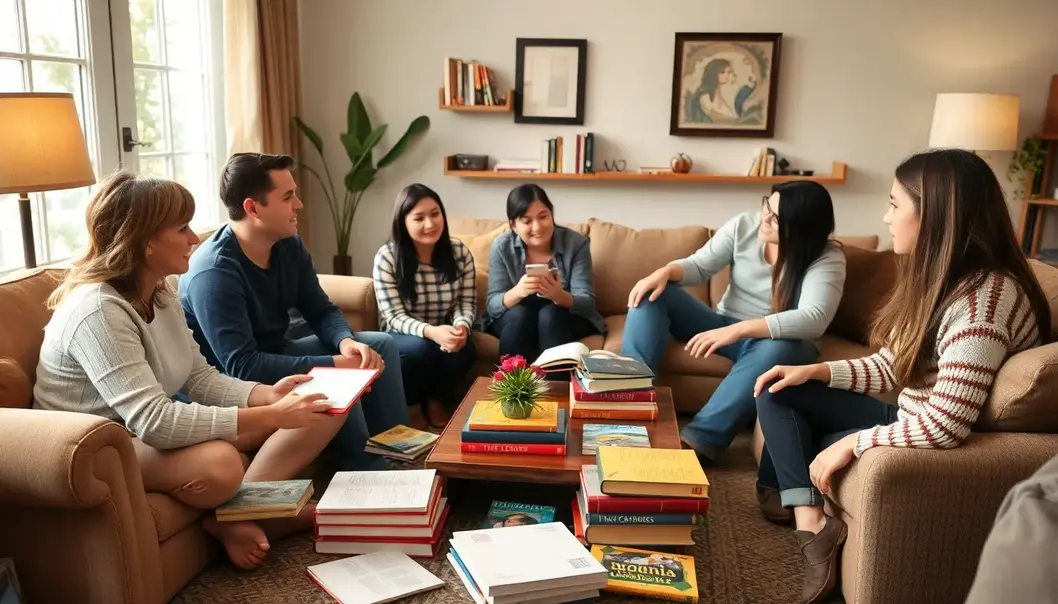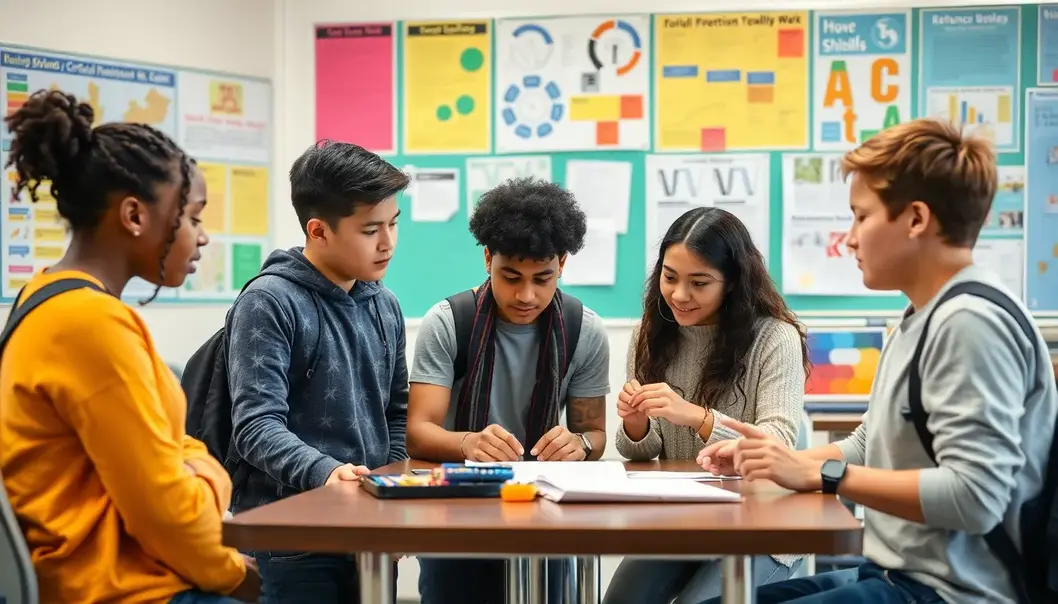As a parent, helping your high schooler develop critical thinking skills can feel daunting yet essential. These skills are crucial not only for academic success but also for making informed decisions throughout life. Encouraging critical thinking involves nurturing a curious mindset, promoting thoughtful questioning, and guiding your child to analyze information effectively. By engaging with practical strategies and supportive communication, you can empower your teenager to navigate complex challenges both inside and outside the classroom confidently. Let’s delve into how you can cultivate these vital skills in your high schooler, creating a strong foundation for their future endeavors.
Creating an Environment for Critical Thinking

Creating a nurturing environment that fosters critical thinking in high school students requires intentionality and openness. Parents play a crucial role in developing an atmosphere where curiosity thrives and open dialogue is encouraged. Here are strategies to cultivate such a setting at home.
One of the foundational aspects is promoting curiosity. Encourage your child to ask questions about the world around them. This does not only mean tolerating questions but inviting them actively. When a child asks, “Why is the sky blue?”, it’s a perfect opportunity to delve into a collaborative exploration. Suggest looking it up together, triggering a discussion about scientific phenomena, and perhaps even leading to a visit to the local library or science museum.
Books are powerful tools for stimulating critical thought. Select diverse readings that challenge existing perspectives and present new ideas. Engage your children in discussions around these books, encouraging them to express their interpretations and question the material. A family book club can be an excellent way to integrate these discussions into regular family activities. Aim to choose books from different genres and cultures to expose your child to a variety of worldviews and ideas.
Media should be approached as a starting point for critical analysis. Instead of passively consuming content, nurture a habit of questioning and discussing what is presented. Watch a documentary together and pause to discuss moments that prompt thoughts or challenge assumptions. This practice helps children evaluate media critically and discern information reliability. Pose questions like, “What is the perspective of the filmmaker?” or “What evidence is provided to support the claims made?”
Fostering a home environment where every member feels comfortable sharing opinions is crucial. Family dinners can be repurposed as times for open dialogue, where everyone is invited to share thoughts about their day, things they’ve learned, or issues they’ve encountered. Listening actively to your child and validating their opinions, even when differing from your own, builds confidence and encourages them to continue thinking critically.
Educational discussions can be seamlessly integrated into everyday life. While engaging in daily activities, such as preparing meals or commuting, present scenarios that invite problem-solving and analysis. For example, discussing the ethical implications of a news story while cooking or playing analytical games during long car rides can stimulate synaptic activity, enhancing critical thinking skills.
Ultimately, creating a supportive environment for critical thinking at home involves embedding these practices naturally into daily interactions. By fostering curiosity and open dialogue, you provide fertile ground for your high school student to develop and hone critical thinking skills, preparing them for the complexities of the world beyond high school.
Practical Strategies for Encouraging Critical Thinking

To nurture critical thinking in high school students, it is imperative for parents to actively engage in practices that stimulate analytical skills. One effective strategy is through problem-solving activities that are both fun and challenging. Setting up puzzles, brainteasers, or games that require strategic thinking can sharpen a student’s ability to analyze and deduce. Encouraging participation in debates or model United Nations can also bolster their ability to construct and evaluate arguments.
Supporting extracurricular activities that demand critical engagement is another invaluable step. Be it through participation in science clubs, coding camps, or theater, these pursuits push students beyond conventional classroom boundaries, requiring them to often solve issues creatively or think on their feet. Theater, for instance, can develop the ability to understand complex scripts and interpret them in a performative context, enriching both empathy and cognitive skills.
In today’s digital age, students are bombarded with information from various sources. Guiding them to critically evaluate media is crucial. Parents can start by discussing news articles, encouraging questioning of sources, and distinguishing between opinion and fact. Teaching students to recognize bias and analyze the motive behind information can empower them with discerning media literacy. Encouraging them to compare perspectives from different media outlets can complete this learning process.
Real-world scenarios provide a fertile ground for applying critical thinking skills practically. Whether planning a family trip or discussing a household budget, involve your teens in decision-making processes. This immersion in real-life problems enhances their ability to use logical reasoning and problem-solving in tangible situations.
While fostering these skills, it’s essential to maintain an open dialogue. Encourage your child to express thoughts, ask questions, and possibly make mistakes from which they can learn. In doing so, you create a safe environment where critical thinking can flourish, smoothing the transition into responsible, informed adulthood.
Final words
Encouraging critical thinking in your high schooler is about more than aiding their education—it equips them for life’s decisions. By fostering an inquisitive spirit, promoting dialogue, and offering practical strategies, you place them on a path of lifelong learning and informed decision-making. Your involvement as a guide and supporter can make all the difference in their ability to think critically, helping them face challenges with confidence and insight.
Join our newsletter for more tips on fostering critical thinking skills in your teenager.
Learn more: https://www.educationinsights.com/newsletter
About us
Education Insights offers resources and workshops for parents to support their child’s educational journey. Through hands-on guides and expert advice, we aim to bridge the gap between home and school, empowering families to nurture lifelong learners.

